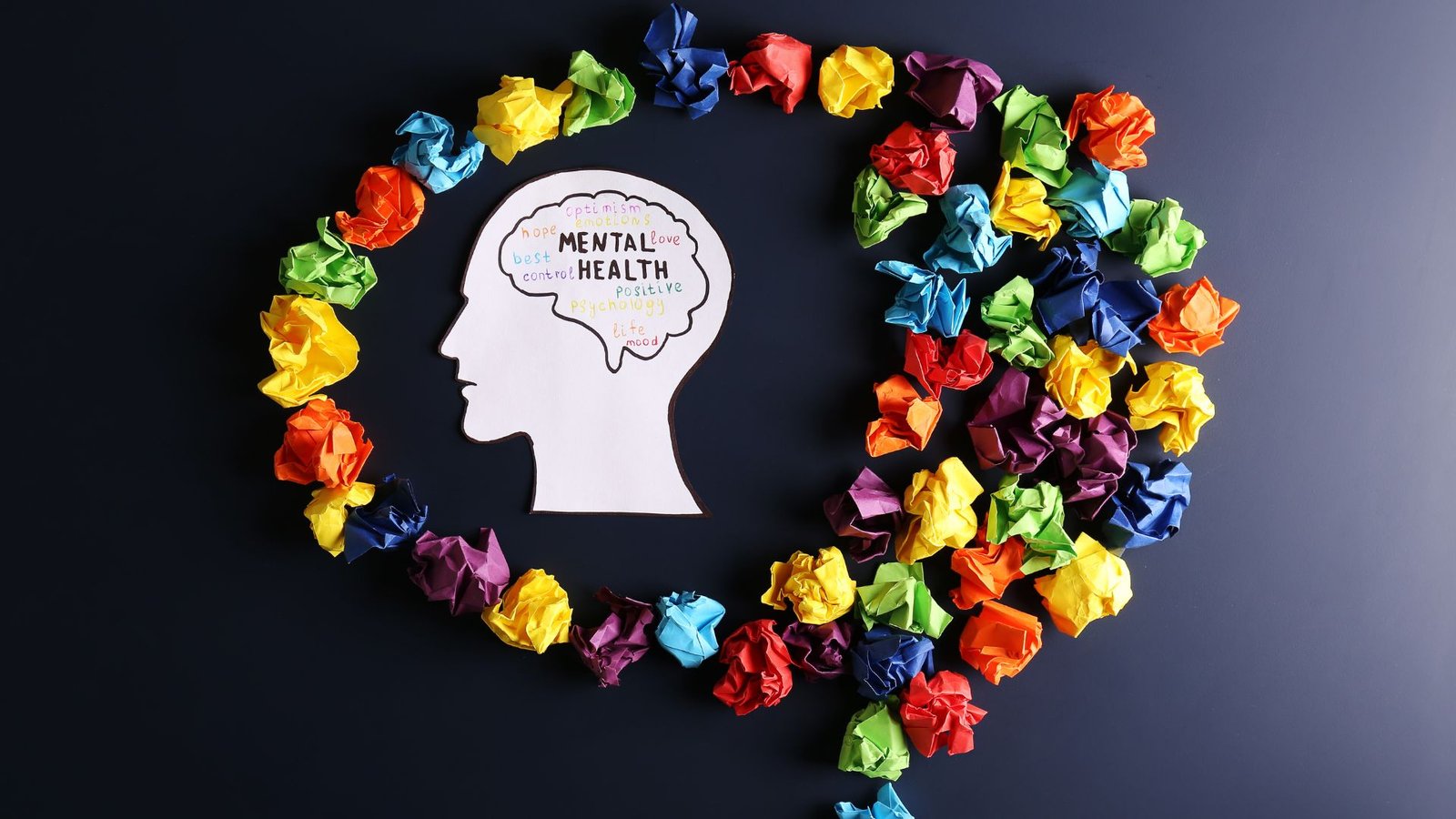Mental health is intricately linked to various factors, including genetics, lifestyle, and environment. However, one of the most overlooked contributors is diet and nutrition. Scientific research continues to highlight the powerful impact that food choices have on brain function, mood regulation, and overall psychological well-being. Nutrients play a vital role in neurotransmitter activity, inflammation control, and gut microbiome health—all of which influence mental wellness.
At Tawam Hospital – Abu Dhabi Healthcare City, our expert psychiatrists, Dr. Adel Taha ELNAGGAR , emphasize a holistic approach to mental health care, incorporating nutrition as an essential part of treatment plans for conditions such as depression, anxiety, ADHD, and insomnia. Understanding how dietary choices affect mental well-being empowers individuals to take control of their health, improving both cognitive function and emotional stability.
The Science Behind Nutrition and Mental Health
The brain is an energy-intensive organ that relies on a steady supply of essential nutrients to function optimally. Poor nutrition can lead to imbalances in neurotransmitters like serotonin, dopamine, and GABA, which regulate mood, motivation, and relaxation.
- The Gut-Brain Connection: The digestive system is often referred to as the “second brain” due to its extensive network of neurons and its role in producing neurotransmitters like serotonin. A balanced gut microbiome, supported by fiber-rich foods and probiotics, promotes emotional stability and mental clarity.
- Nutrient Deficiencies and Mental Health: A lack of key nutrients such as omega-3 fatty acids, B vitamins, and magnesium can contribute to conditions like depression, anxiety, and cognitive decline.
- Inflammation and Brain Function: Diets high in processed foods and sugar promote inflammation, which has been linked to mental health disorders. Anti-inflammatory foods, such as leafy greens and berries, support cognitive resilience.
Essential Nutrients for Mental Health
A well-balanced diet provides the building blocks for optimal brain function. Some of the most crucial nutrients for mental well-being include:
- Omega-3 Fatty Acids: Found in fatty fish, walnuts, and flaxseeds, these essential fats support cognitive function and help reduce symptoms of depression and anxiety.
- B Vitamins (B6, B9, B12): Vital for neurotransmitter production, deficiencies in these vitamins are linked to increased stress, mood disorders, and cognitive decline. Sources include whole grains, leafy greens, and lean meats.
- Vitamin D: Low levels of vitamin D have been associated with depression and seasonal affective disorder. Sunlight exposure, fortified dairy products, and fatty fish are good sources.
- Amino Acids and Protein: Proteins help in neurotransmitter synthesis, particularly dopamine and serotonin. Lean meats, eggs, legumes, and dairy support mental clarity and emotional balance.
- Magnesium and Zinc: These minerals play an essential role in stress regulation, relaxation, and reducing symptoms of anxiety. Nuts, seeds, dark chocolate, and whole grains are excellent sources.
The Impact of Poor Nutrition on Mental Health
An unhealthy diet filled with processed foods, refined sugars, and trans fats negatively impacts mental health in several ways:
- Increased Risk of Depression and Anxiety: Diets high in ultra-processed foods can cause blood sugar fluctuations, leading to mood swings and irritability.
- Brain Fog and Cognitive Decline: Deficiencies in essential nutrients lead to difficulty concentrating, memory issues, and reduced problem-solving abilities.
- Gut Dysbiosis: Excessive sugar and processed food consumption disrupt the gut microbiome, contributing to inflammation and worsening mental health disorders.
- Excessive Caffeine and Alcohol Intake: While caffeine can enhance alertness in moderation, excessive intake can trigger anxiety. Similarly, alcohol disrupts sleep and neurotransmitter balance, increasing the risk of depression.
Diet Patterns and Mental Health
Several diet patterns have been linked to better mental health outcomes:
- Mediterranean Diet: Rich in healthy fats, lean proteins, and whole grains, this diet has been shown to reduce depression and cognitive decline. Foods like olive oil, fish, nuts, and fresh vegetables support brain health.
- Plant-Based Diets: While plant-based diets can provide essential nutrients, careful planning is necessary to avoid deficiencies in vitamin B12, iron, and omega-3 fatty acids.
- Ketogenic and Low-Carb Diets: These diets can help stabilize mood and energy levels by reducing sugar crashes and promoting stable blood sugar levels. However, they should be approached with professional guidance.
- Intermittent Fasting: Research suggests that intermittent fasting may enhance cognitive function, reduce inflammation, and support mental clarity. However, it should be adapted to individual health needs.
At Tawam Hospital – Abu Dhabi, our expert psychiatrists guide patients toward personalized nutritional strategies that complement medical treatment for mental health conditions. A balanced, nutrient-dense diet can be a powerful tool in managing depression, anxiety, ADHD, and other psychological disorders. If you are struggling with mental health challenges and want to explore how diet can support your well-being, book a consultation with Dr. Adel Taha ELNAGGAR at Tawam Hospital – Abu Dhabi Healthcare City.
Stay tuned for the next section, where we discuss the role of gut health, meal planning strategies, and practical dietary tips for maintaining a strong and healthy mind.
The Role of Gut Health in Mental Well-being
The gut-brain connection is a vital factor in mental health, influencing emotions, cognition, and overall psychological well-being. The gut microbiome, a complex community of bacteria in the digestive system, plays a crucial role in producing neurotransmitters like serotonin and dopamine, which regulate mood and stress responses.
- Gut Bacteria and Brain Function: A balanced gut microbiome supports cognitive function, emotional stability, and resilience against stress and anxiety.
- Probiotics and Prebiotics: Probiotics (found in yogurt, kefir, and fermented vegetables) and prebiotics (found in fiber-rich foods like bananas, onions, and garlic) enhance gut health, which in turn promotes mental well-being.
- Foods for a Healthy Gut: Consuming fermented foods, fiber-rich vegetables, and whole grains nourishes beneficial gut bacteria, improving digestion and mental clarity.
Nutritional Strategies for Managing Mental Health Conditions
Different mental health conditions benefit from targeted nutritional interventions. A well-balanced diet can significantly improve symptoms and enhance treatment outcomes.
- Depression: Anti-inflammatory foods such as leafy greens, berries, and fatty fish can help reduce symptoms. Omega-3 fatty acids and antioxidants combat oxidative stress linked to depressive disorders.
- Anxiety: Magnesium-rich foods like almonds, spinach, and dark chocolate, along with reducing caffeine intake, can help manage anxiety levels.
- ADHD: Protein-rich foods, omega-3 fatty acids from fish and flaxseeds, and limiting refined sugar intake can improve focus and impulse control.
- Insomnia: Tryptophan-rich foods like turkey, bananas, and chamomile tea promote serotonin production, aiding in better sleep patterns.
Practical Tips for a Brain-Healthy Diet
Incorporating simple dietary habits can enhance cognitive function and emotional stability.
- Small Dietary Changes: Replacing processed foods with whole foods, increasing fruit and vegetable intake, and ensuring a balance of macronutrients can positively impact mood and energy levels.
- Meal Planning Strategies: Preparing nutrient-dense meals in advance helps maintain consistency in healthy eating habits, reducing reliance on unhealthy options.
- Hydration and Mindful Eating: Drinking adequate water and practicing mindful eating habits improve digestion and brain function, reducing stress and enhancing mental clarity.
Role of Professional Guidance in Mental Health Nutrition
A holistic approach to mental health includes collaboration between psychiatrists and nutritionists to create personalized dietary plans that complement medical treatments.
- Collaboration Between Specialists: Psychiatrists work alongside nutrition experts to ensure a comprehensive approach to mental wellness, integrating dietary interventions with psychotherapy and medication when necessary.
- Medical Advice for Supplementation: Consulting a healthcare provider before taking supplements ensures proper nutrient intake without adverse effects.
- Holistic Mental Health Care at Tawam Hospital: Under the guidance of Dr. Adel Taha ELNAGGAR, Consultant Psychiatrist at Tawam Hospital – Abu Dhabi Healthcare City, patients receive tailored mental health support, integrating diet and lifestyle modifications with evidence-based psychiatric treatments.
To Summarize, A nutrient-rich diet is essential for maintaining optimal mental health. By adopting healthy eating habits, individuals can improve mood, cognitive function, and emotional resilience. For those seeking professional guidance, Dr. Adel Taha ELNAGGAR and the team at Tawam Hospital – Abu Dhabi Healthcare City offer expert psychiatric care combined with holistic nutritional strategies to support mental well-being. Book a consultation today and take the first step toward a healthier mind and body.



